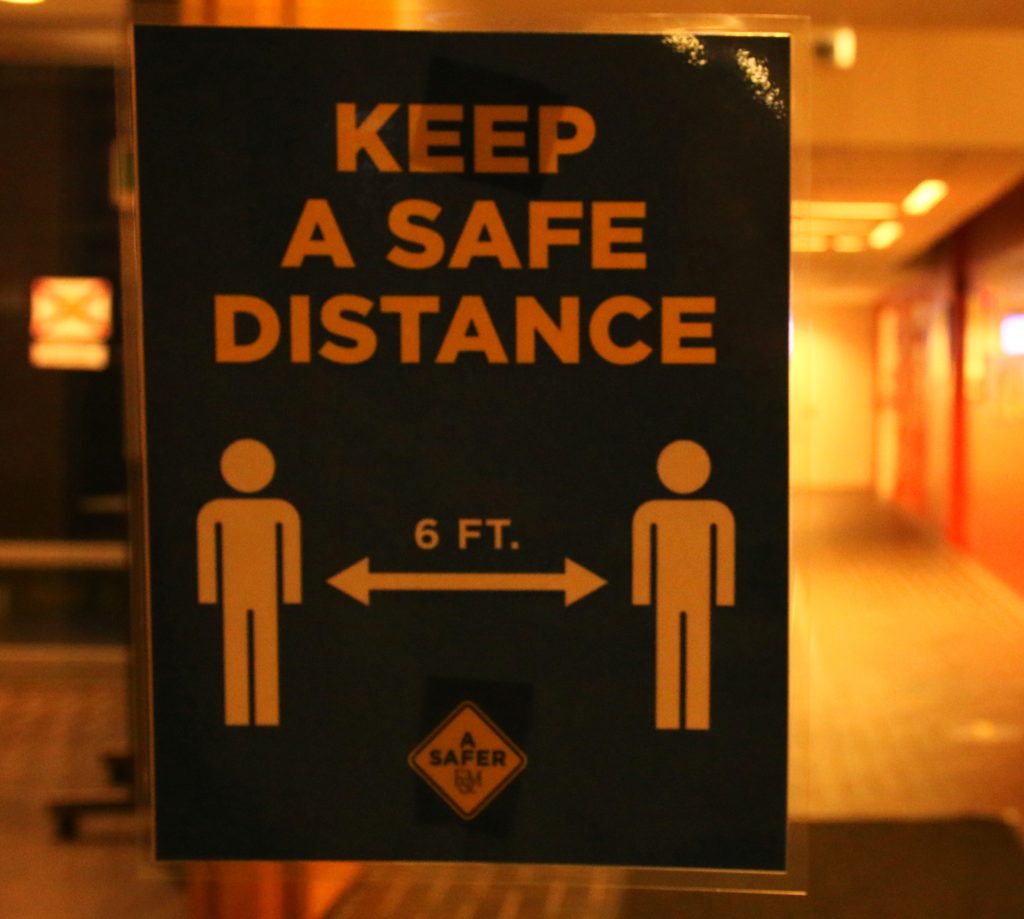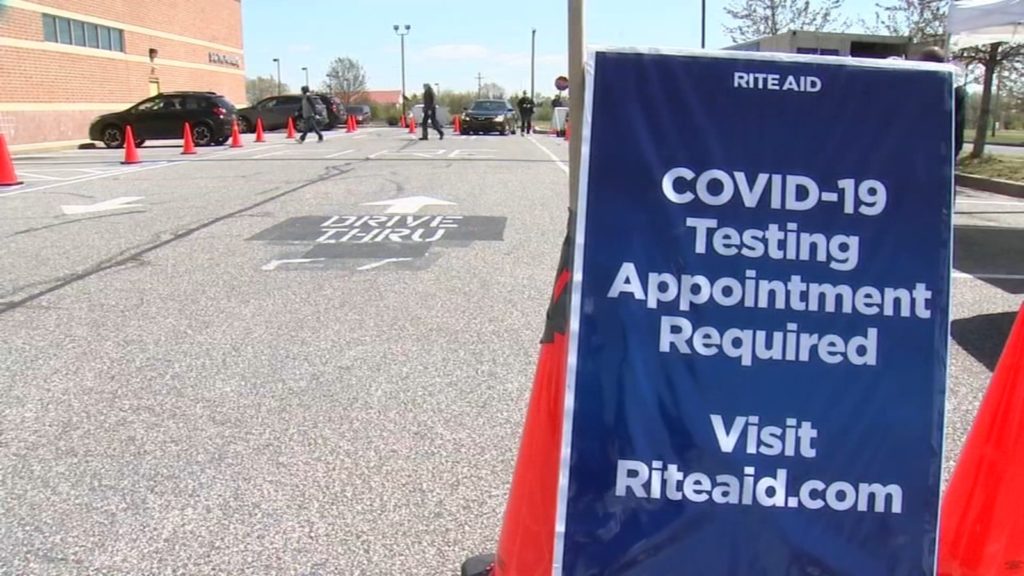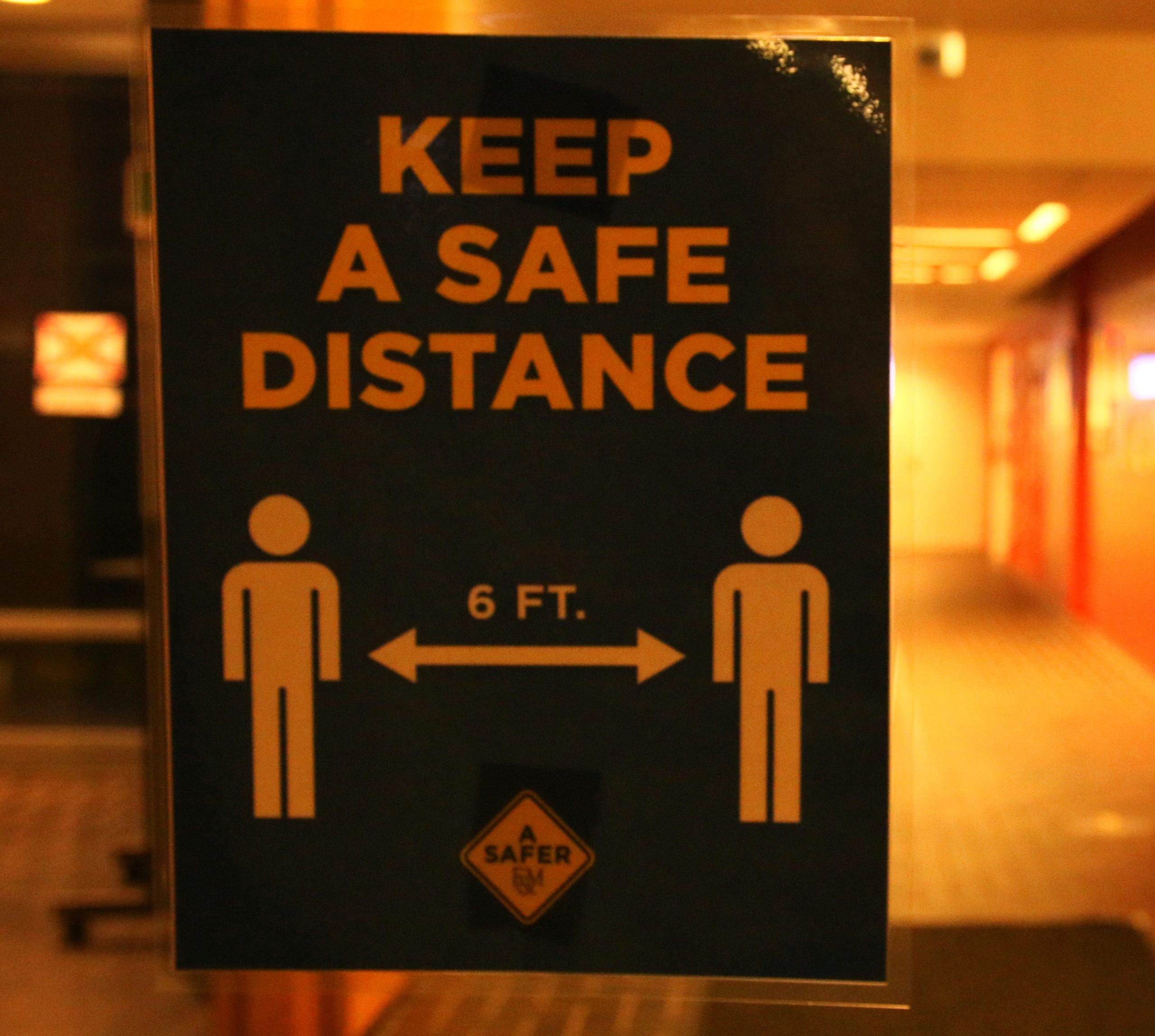By Daniel Robillard || Investigative Reporter
The recent spike in COVID-19 cases at F&M this past week has led some students, rather than waiting weeks to be tested by the College, to seek testing outside of F&M, and it has spurred others to leave campus entirely.

In just one week, Franklin & Marshall College experienced a surge of 31 new positive COVID-19 cases, according to the F&M COVID-19 Dashboard.
The recent surge, a 163% rise in the number of cumulative cases on campus, comes with just a few weeks remaining in the fall semester, and follows a month that saw no new COVID-19 cases.
At the start of October, F&M had 19 cumulative positive COVID-19 results since reopening in August. The College added no new cases for all of October, and many students began to express optimism that, if F&M could continue avoiding COVID-19 cases, then maybe the spring semester would look a little more like the college experience they remembered.
However, on Nov. 6, four positive results were received from the round of modified universal testing—in which a third of the student body is tested every three weeks—conducted on Nov. 2 and 3. In an email to the campus community, Dr. Alan Caniglia, the College’s Vice President for Strategic Initiatives, said that, during the contact tracing process, the students and professor in a class that one of the four positive students was taking had been identified as close contacts.
A few days later, at the start of last week, eight additional positive COVID-19 cases were found in the special surveillance testing that the College conducted for 72 students on Nov. 6. The special surveillance testing was conducted for groups of students connected to the four positive cases found in the modified universal testing round and primarily included members of the Men’s Football Team, according to several individuals with knowledge of the nature of the testing.
In an email announcing those eight cases, Caniglia emphasized that contact tracing suggested that the spike in cases was relatively isolated, and that there was “no indication of a superspreader event.”
Then, on Thursday, Nov. 12, the College’s Pandemic Operations Response Team (PORT) sent an urgent email to the campus community announcing that an additional seven students had tested positive in the round of modified universal testing conducted on Nov. 9 and 10. The rapid spike in cases led to PORT moving the F&M COVID-19 Alert Level from “Moderate” to “High.”
The decision to move to the “High” alert level status was made “out of an abundance of caution, given the number of COVID-19 cases on campus and in Lancaster, and the increasing potential for exposure to the virus through community spread,” the email stated. As a result, all in-person social activities and events were canceled and students were strongly discouraged from traveling off-campus. However, in-person classes and campus dining services such as the Dining Hall would continue to be permitted.
“If conditions do not improve rapidly,” the email warned, “the College may need to take further measures, such as impose a campus-wide modified quarantine until circumstances improve or until campus closes.”
At least a dozen professors have already decided to move their in-person classes entirely online for the remainder of the semester, according to emails and canvas notifications shared with The College Reporter.
The recent spike in COVID-19 cases on campus has not just been contributed to by the College’s modified universal and special surveillance testing programs. More than one-third of F&M’s positive results from this past week came from testing conducted through the Student Wellness Center and off-campus testing sites not associated with the College.
The Wellness Center, which only tests students presenting symptoms of COVID-19, has seen a huge spike in the number of tests that it is performing. According to the most recent F&M COVID-19 Dashboard update, the Wellness Center had conducted 18 tests between Nov. 5 and Nov. 12, by far the highest number of tests the Center has performed since the College reopened in August. Of the 18 tests conducted last week, 10 results have already come back, five of which were positive for COVID-19.
Whereas the College provides free, required testing for all students tests through the modified universal testing and any additional special surveillance testing, tests conducted at the Wellness Center are for those seeking care after presenting symptoms and are typically charged to a student’s insurance.
As the anxiety of contracting COVID-19 rises on campus, more and more students have pursued off-campus coronavirus testing at providers like Rite Aid or MedExpress. At least seven of the recent positive cases have been identified through these off-campus tests. Some of the students who decided to take off-campus tests told The College Reporter that, while they were not identified by the College as close contact, they were worried that they could have contracted the virus and did not want to risk being an asymptomatic spreader while they waited days or weeks to be tested by the school.
“I made the decision to get tested off-campus because my point of exposure did not have confirmed results and they did not list me as a direct contact, so I was not required to get tested through F&M,” a Junior who was worried that she had possibly come into contact with the virus told The College Reporter. The student also decided to leave campus early and return home for the rest of the fall semester. “When I got tested off-campus, my next F&M test wasn’t for another two weeks so I was not comfortable waiting, out of fear I was infecting others if I was carrying the virus asymptomatically,” she said.
The College Reporter is withholding the names of the students that agreed to be interviewed for this article in order to respect privacy concerns.
“The school said that since I didn’t qualify as a close contact and I didn’t have symptoms, they wouldn’t test me,” a Senior who said she got an off-campus test after learning that her roommate had tested positive for the virus told The College Reporter. “Since it was my roommate, and I had seen her, I was really worried and wanted to make sure,” she said.
The fact that students have increasingly sought off-campus testing options may be an indication of a shortfall in the College’s testing efforts, but could also be a testament to the seriousness with which many students have taken the threat of COVID-19 on campus.

As F&M’s positive cases continue to pile-up, some students have decided to leave campus early and return home rather than risk contracting COVID-19 while on campus.
One student, who was identified as a close contact after a person in one of her classes had tested positive, said that the College told her she could either quarantine in Schnader Hall—the dorm where the College quarantines some students identified as close contacts and isolates students testing positive— and sign-up for testing later that week, or she could move out of her off-campus apartment and return home for the semester.
“I decided to leave because my quarantine would’ve lasted till Nov. 19, and since classes would end on Nov. 20, I didn’t see the point in going to Schnader [Hall], where I’ve heard it’s a really sad experience,” the student told The College Reporter. Instead of moving into Schnader Hall, the student decided to leave campus entirely and do the rest of the semester remotely from home, where she also got a COVID-19 test.
For some, leaving campus and going home to quarantine simply isn’t an option. “I live on the other side of the country, so abruptly packing up and moving back home before the end of the semester just wasn’t possible,” a student quarantining in Schnader Hall after he was identified as a close contact said.
The College Reporter also spoke to several groups of students who decided to leave campus early after cases began to spike even though they were not required to go into quarantine.
“When I first started to hear of cases rising on F&M’s campus, I figured it would be the smartest move to get tested and head home before it gets worse,” a Junior who would be doing the rest of the semester remotely said.
Another student who decided to leave campus early and move back home for the rest of the semester felt the emotional strain of the pandemic college experience. “I left because it’s lonely and repetitive, especially when we are trying to stay safe before seeing family,” she said.
The risk of bringing COVID-19 back home after living on a college campus where cases are rapidly mounting and possibly exposing family members and friends is not just a concern at F&M. Predicting a winter surge in the spread of the virus, most colleges and universities across the country made plans to halt in-person instruction right before Thanksgiving and hold the remaining weeks of the fall semester online.
As such, over the next two weeks, hundreds of thousands of college students who have spent the last few months at school will leave campus and return to their homes. Many will move across state lines, traveling on trains, busses, and planes, which, the Centers for Disease Control and Prevention (CDC) has stated, increases the chances of contracting and spreading COVID-19.
In recent weeks, public health officials and epidemiologists have raised alarm bells about the potentially disastrous effects of such a large number of students traveling home and the inconsistencies among different colleges’ and universities’ plans—or lack thereof—to mitigate the risks that students bring home after leaving campus.
Many experts and officials have pushed for colleges and universities to require exit-testing—where students have to receive a negative COVID-19 test before traveling back home—and take other quarantine and isolation measures to prevent students, who are more likely to be asymptomatic spreaders, from leaving campus and infecting others.
All students in any of New York State’s university system’s more than 60 schools—amounting to nearly 150,000 students—will be exit-tested and are required to receive a negative result before being allowed to leave campus to return home. The University of Connecticut has placed all students living in residence halls in a modified quarantine for the rest of the semester and will require students to be exit-tested before leaving campus.
Some smaller liberal arts colleges are also taking preventative measures before students leave for the Thanksgiving holiday. Schools such as Colby College in Maine and Hamilton College in New York—both of which use the Broad Institute, the same testing provider that F&M uses—have already been testing all of their students several times a week during the fall semester and will require several negative tests before students will be allowed to leave campus for home.
Other schools, such as F&M, are offering exit-testing but are making it entirely voluntary—allowing students to travel home without being tested before they depart campus. While about one-third of the student body will be tested a week before Campus shuts down through the College’s regularly scheduled modified universal testing, F&M has said it will also make that round of testing available to any other students who wish to sign up.
Whereas some schools providing voluntary exit-testing, such as Pennsylvania State University, have strongly urged all students to get tested before leaving campus before the Thanksgiving holiday, F&M has been curiously silent. Although Caniglia, the College’s point-person for testing, described the voluntary exit-testing option in an email to students on Oct. 30 and sent a reminder about it last week, very little has been done to push students to receive exit-tests before leaving campus.
The College has said that it will continue to maintain support for any students who test positive through the voluntary exit-testing—and for any students identified as close contacts—and will need to quarantine or isolate for two weeks even after the College is scheduled to close. However, F&M is doing little in the way of ensuring that students cannot leave for home without first receiving a negative test result. Students who decide to go home early—an increasing number with more and more professors moving classes online—could still get exit-tested and leave campus before finding out if their result was negative, that is if they volunteer to participate in exit-testing at all.
A total of 1151 students, 79% of the total number of students in residence or commuting this semester will receive exit-testing, Caniglia told The College Reporter in an email on Monday morning. In the email, Caniglia also said he disagreed with the characterization that the College had been “curiously silent” regarding strongly urging all students to get exit-testing, pointing to the College’s efforts to enhance the availability of exit-testing and adding extra testing capacity, including an additional day of exit-testing.
“We take very seriously our responsibility to avoid spreading infection by sending students home without testing,” Caniglia said on Monday morning. “Moreover, our students are demonstrating strong concern for the families and communities to which they will be returning, and this is a strong statement of support for the overall approach we have maintained.”
Some of the students who left campus after F&M’s cases began to rise last week say that they are glad they chose to do so, as the number of active cases rose to 30 on Friday. “I was definitely sad to leave because I didn’t get to say my goodbyes, but I am 100% confident with my choice, as F&M is now on ‘High’ alert,” one of the Juniors who returned home last week said. “Plus, I am now spending lots of time with my family—COVID free.”
**UPDATE Nov. 16, 12:20PM: This article was updated to provide Caniglia’s comments on exit-testing.**
Junior Daniel Robillard is an Investigative Reporter. His email is drobilla@fandm.edu.
